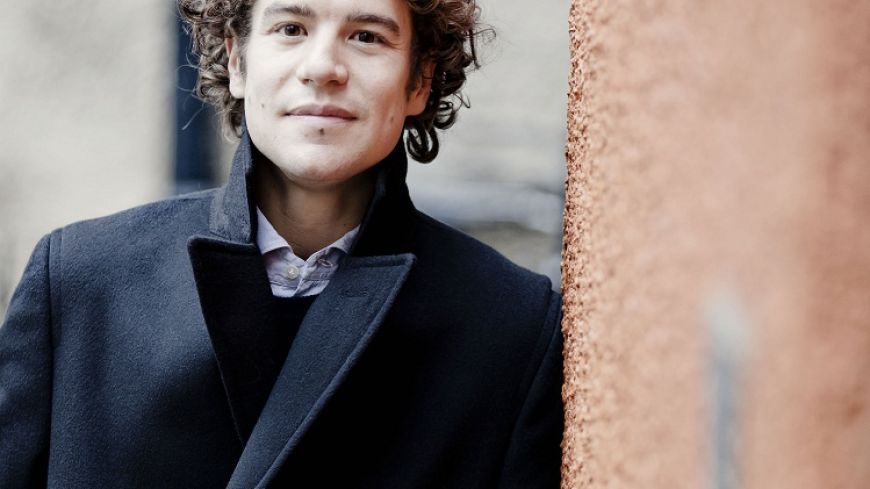
The Scottish Chamber Orchestra, which marks its 40th Anniversary this 2013/14 season, has grown from strength to strength over the decades. Founded in 1974 by the conductor Roderick Brydon, his artistic vision for the orchestra was adventurous. In those days, as far as audiences were concerned, chamber orchestras played solely classical music but Brydon’s vision for the SCO was different and from the beginning the orchestra included contemporary works in their programmes. Continuing the tradition, in November of this year the orchestra will be premiering the Master of the Queen’s Music, Sir Peter Maxwell Davies’ new composition “Ebb of Winter”.
The season's opening concert was Berlioz ‘opera comique’ Beatrice and Benedict. Robin Ticciati, their artistic director, and Principal Conductor, who despite only being thirty, has developed a terrific reputation in the world of opera [in 2014 he takes up the post of music director at Glynebourne Festival Opera] and what better than to use his expertise to launch this significant season.
Berlioz, who was fond of Shakespeare’s works, wrote Beatrice and Benedict towards the end of his life. The opera, in two Acts, (which Berlioz conducted in 1863) is based loosely on Shakespeare’s ‘Much Ado About Nothing’ and as his biographer David Cairns noted: "Listening to the score's exuberant gaiety, only momentarily touched by sadness, one would never guess that its composer was in pain when he wrote it and impatient for death.”
Ignoring the inevitable Shakespearean sub-plots, Berlioz instead focused on the contrasting relationships of the principal characters Hero and Claudio, who are deeply in love - and Beatrice and Benedict, who are both adamant they will never marry but at the end concede they really are in love, despite their playful resistance to that reality.
Set in the Sicilian town of Messina the opera begins on a joyous, uplifting note with the chorus celebrating the return of Don Pedro of Aragon. Then there is a solo from Hero, sung by the soprano Sally Matthews whose heartrending cadenza extolling her enduring love for Claudio was outstanding. The mood is then swiftly altered to a sparring duet with Beatrice and Benedict.
The mezzo soprano Karen Cargill was Beatrice and with wonderful flexible intonation she perfectly portrayed the frivolity of Beatrice’s character. As did the tenor Kenneth Tarver as Benedict who vocally interpreted the character deftly and with much humour.
The first act concludes with a slow duet for Hero and her maid Ursula, divinely sung by Sally Matthews and Kathleen Wilkinson. The second act opens with the chorus solely accompanied by a guitar (a favourite instrument of Berlioz) and two tambourines. Then Beatrice unexpectedly does a volte face when she realizes she is in love with Benedict and soon after – to the amazement of Hero and Ursula - accompanies them in a trio celebrating the joys of marriage.
Towards the end Beatrice and Benedict joyfully acknowledge their love but concede “…today a truce is signed. Tomorrow we’ll become enemies again.”
The opera concludes with an extended, exhilarating orchestral finale.
Ticciati was in his element with this performance and at times created magical orchestral moments. The choice of soloists was apt for their voices blended perfectly in the duets and trios. The orchestra were on top form and the SCO chorus sounded superb.
Friday 4 October: Glasgow City Halls 7.30pm

